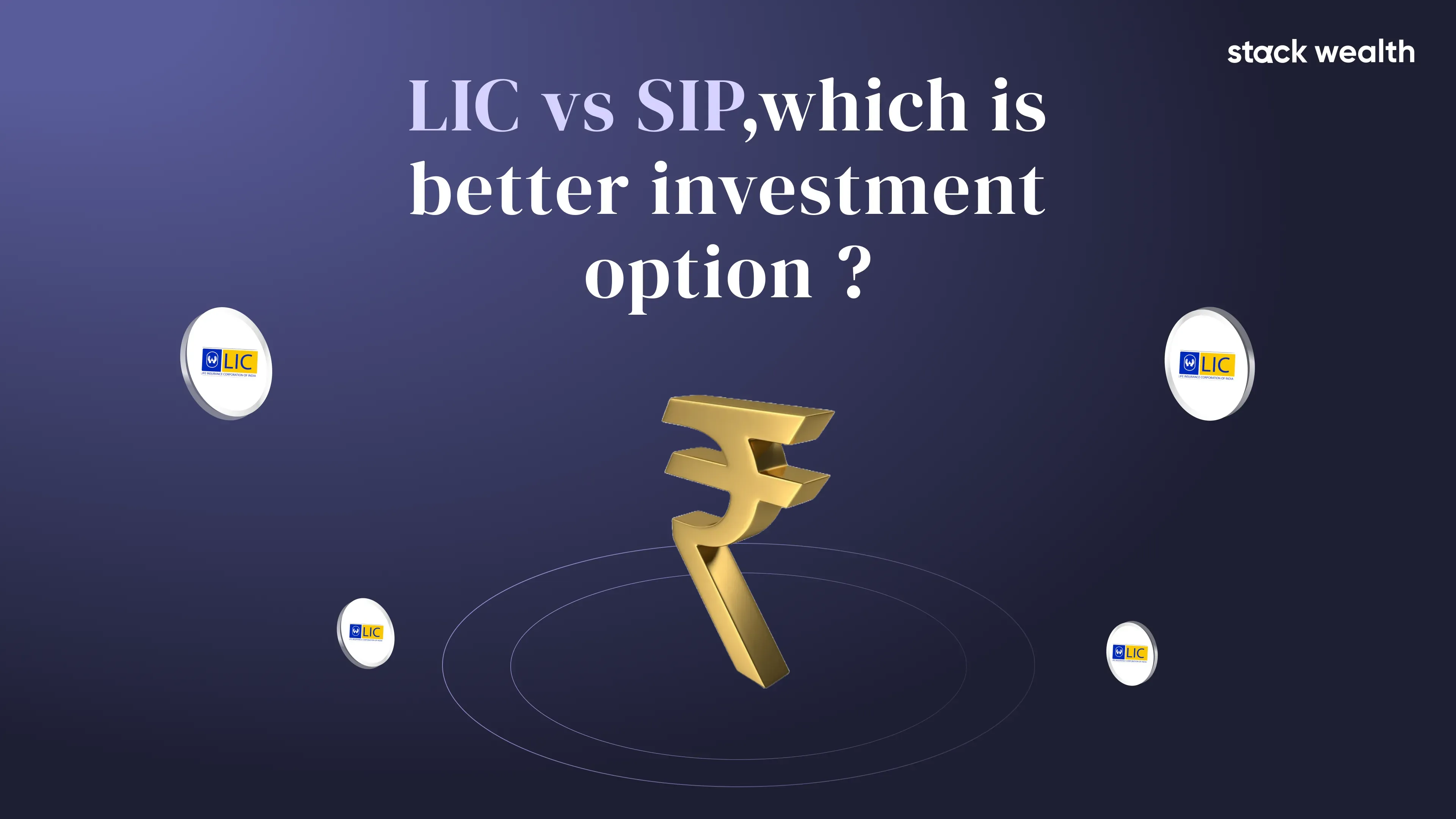Tata Mutual Fund provides mutual fund schemes, goal-oriented growth plans, and many of India's first NFOs with lumpsum and SIP investment options. TATA Asset Management Private Limited handles investments of Tata Mutual Fund. Its diverse fund offerings allow investors to invest according to their financial goals, life stage, and risk tolerance.
As of 31 December 2024, 48 Lac + Investors had invested in different mutual fund schemes, while over 24 Lac SIPs had been registered as of Q3 FY 24-25. There was 30 % Annual Rise in Equity + Balanced Funds AUM as of Q3 FY 24-25 and 56 % Equity + Balanced Funds % of AUM as of 31-Dec-2024.
Key Information About Tata Mutual Fund
How to Invest in the Tata Mutual Fund
Investing in the best Tata Mutual Funds can be a complex process. To make it easier, here is a step-by-step guide:
1. Choose Your Mutual Fund Type
According to your risk tolerance (low, mid, or high) and financial goals, choose your mutual types, such as equity, debt, hybrid, index, and sector funds.
2. Select a Mutual Fund Scheme
After carefully analysing the historical returns, expense ratio, reviews, and ratings of different schemes, choose your preferred Tata Mutual Fund.
3. Login or Open a Demat Account
Log in to your Stack Wealth account. If you do not have an account, you can register with your mobile number and create a new one immediately.
4. Complete KYC (Know Your Customer) Requirements
The next step involves providing personal information and verifying identity. You must upload a government-issued ID such as PAN, Aadhar and proof of address. Follow the app guidelines to ensure a seamless process.
5. Select Investment Mode (SIP or lumpsum)
If you prefer regular, disciplined investing, you can set up a periodic systematic investment plan (SIP). You can also make a lump-sum investment if you have a large amount to invest. Select the investment period of your choice.
6. Confirm and Track Your Investment
After setting up your investment, relax and let your money grow. The Stack Wealth app will provide regular updates and reports on your portfolio’s performance. You can also adjust your investments or withdraw funds as needed.
List of Best Tata Mutual Funds in India
Here is the list of some of the best Tata Mutual Funds in India:
* All data as of 09 Feb 2025
Detailed Overview of Tata Mutual Fund Schemes
Now, let’s discuss these 10 Tata mutual fund schemes in detail:
1. Tata Mid Cap Growth Fund-Direct-Growth Plan
Tata Mid Cap Growth Fund is an open-ended equity fund which invests in equity and equity-related securities of well-researched growth-oriented mid-cap stocks.
- Fund Performance: The fund's annualized returns for the past three and five years have been around 21.60% and 26.23%, respectively. In three years, the current value of an Investment of ₹10,000 will become around ₹ 17,980.
- Minimum Investment Amount: The minimum lump sum for the Tata Mid Cap Growth Fund is ₹5,000, and for SIP, it is ₹100.
2. Tata Corporate Bond Fund-Direct-Growth Plan
Tata Corporate Bond Fund is a debt scheme that aims to generate returns for investors over the short to medium term by accumulating capital from investments in corporate debt instruments.
- Fund Performance: The fund's annualized returns for the past one and three years have been around 8.75% and 6.37%, respectively. In three years, the current value of an Investment of ₹10,000 will become around ₹ 12,035.
- Minimum Investment Amount: The minimum lump sum for the Tata Corporate Bond Fund is ₹5,000; for SIP, it is ₹150.
3. Tata Balanced Advantage Fund-Direct-Growth Plan
Tata Balanced Advantage Fund is a hybrid scheme that seeks capital appreciation opportunities and income distribution through investments in a mix of equity, arbitrage, and debt portfolios.
- Fund Performance: The fund's annualized returns for the past three and five years have been around 12.59% and 14.72%, respectively. In three years, the current value of an Investment of ₹10,000 will become around ₹ 14,273.
- Minimum Investment Amount: The minimum lump sum for the Tata Balanced Advantage Fund is ₹5,000, and for SIP, it is ₹100.
4. Tata Flexi Cap Fund-Direct-Growth Plan
Tata Flexi Cap Fund is an open-ended equity scheme that invests in large-cap, mid-cap, and small-cap stocks. It aims to generate medium to long-term capital growth.
- Fund Performance: The fund's annualized returns for the past three and five years have been around 13.03% and 16.63%, respectively. In three years, the current value of an Investment of ₹10,000 will become around ₹ 14,442.
- Minimum Investment Amount: The minimum lump sum for the Tata Flexi Cap Fund is ₹5,000 and for SIP, it is ₹100.
5. Tata Money Market Fund-Direct-Growth Plan
Tata Money Market Fund is a debt scheme investing in money market instruments. It is an open-ended fund with a relatively low interest rate and moderate credit risk.
- Fund Performance: The fund's annualized returns for the past three and five years have been around 6.88% and 6.26%, respectively. In three years, the current value of an Investment of ₹10,000 will become around ₹ 12,211.
- Minimum Investment Amount: The minimum lump sum for the Tata Money Market Fund is ₹5,000; for SIP, it is ₹500.
6. Tata Arbitrage Fund-Direct-Growth Plan
Tata Arbitrage Fund is an open-ended hybrid scheme that invests primarily in arbitrage opportunities in equity market cash and derivatives instruments and the rest in debt and money market instruments.
- Fund Performance: The fund's annualized returns for the past three and five years have been around 7.03% and 6.27%, respectively. In three years, the current value of an Investment of ₹10,000 will become around ₹ 12,260.
- Minimum Investment Amount: The minimum lump sum for the Tata Arbitrage Fund is ₹5,000; for SIP, it is ₹150.
7. Tata Dividend Yield Fund-Direct-Growth Plan
Tata Dividend Yield Fund is an equity scheme that invests primarily in a well-diversified portfolio of dividend-yielding companies. Its investments include equity and equity-related instruments.
- Fund Performance: The fund's annualized returns for the past one and three years have been around 13.55% and 17.29%, respectively. In three years, the current value of an Investment of ₹10,000 will become around ₹ 16,138.
- Minimum Investment Amount: The minimum lump sum for the Tata Dividend Yield Fund is ₹5,000, and for SIP, it is ₹100.
8. Tata Treasury Advantage Fund-Direct-Growth Plan
Tata Treasury Advantage Fund is an open-ended, low-duration debt scheme that invests mainly in instruments with a Macaulay portfolio duration between 6 and 12 months.
- Fund Performance: The fund's annualized returns for the past three and five years have been around 6.46% and 6.18%, respectively. In three years, the current value of an Investment of ₹10,000 will become around ₹ 12,066.
- Minimum Investment Amount: The minimum lump sum for the Tata Treasury Advantage Fund is ₹5,000, and for SIP, it is ₹500.
9. Tata Hybrid Equity Fund-Direct-Growth plan
Tata Hybrid Equity Fund is an open-ended hybrid scheme investing predominantly in equity and equity-related instruments to provide Income Distribution cum capital withdrawal and or capital appreciation over a medium to long period.
- Fund Performance: The fund's annualized returns for the past three and five years have been around 13.52% and 15.40%, respectively. In three years, the current value of an Investment of ₹10,000 will become around ₹ 14,629.
- Minimum Investment Amount: The minimum lump sum for the Tata Hybrid Equity Fund is ₹5,000, and for SIP, it is ₹100.
10. Tata Digital India Fund-Direct-Growth Plan
Tata Digital India Fund is an equity scheme (open-ended) investing at least 80% of its net assets in equity or equity-related instruments of companies in India's Information Technology Sector.
- Fund Performance: The fund's annualized returns for the past three and five years have been around 11.37% and 30.94%, respectively. In three years, the current value of an Investment of ₹10,000 will become around ₹ 13,813.
- Minimum Investment Amount: The minimum lump sum for the Tata Digital India Fund is ₹5,000; for SIP, it is ₹100.
Top Fund Managers
Below is the list of people who have made Tata Mutual Fund Investment a standout choice in a highly competitive market.
1. Sonam Udasi
Sonam Udasi has over 25 years of expertise in Equity Research. Since April 2016, he has been the senior fund manager for many of Tata Asset Management's equity schemes. He joined Tata Asset Management Pvt. Ltd. as Head of Research in April 2014 and served as the Principal Officer for the Portfolio Management Services vertical.
2. Amey Sathe
Amey Sathe is a chartered financial analyst in the USA who completed his Master of Management Studies at the University of Mumbai. He joined Tata Asset Management Ltd. in May 2015 as a Research Analyst, tracking the Banking and Financial Services sectors and reporting to the Chief Investment Officer of equities.
3. Murthy Nagarajan
Mr. Murthy Nagarajan is the Head of Fixed Income at Tata Asset Management.
With decades of expertise in the debt market, Mr. Murthy brings rich and valuable industry experience in the financial services space.
4. Akhil Mittal
Mr. Akhil Mittal joined Tata Asset Management in June 2014 as a senior fund manager of fixed income. Mr Akhil manages debt funds, including ultra-short funds, short & long-duration funds and fixed-income allocation in hybrid funds.
5. Amit Somani
Mr Amit Somani is a senior fixed-income fund manager with extensive experience in Global and Indian financial markets. He joined Tata Asset Management as a Credit Analyst in June 2010 and has been a fund manager (fixed-income) since September 2012. He specialises in Credit Analysis and Fund Management.














